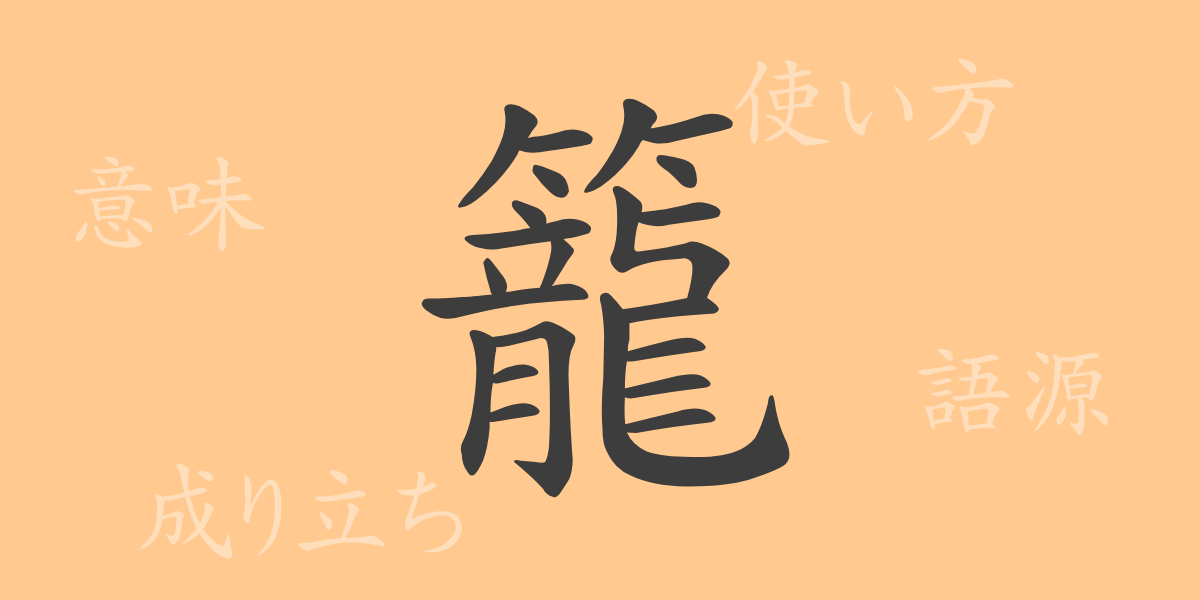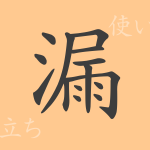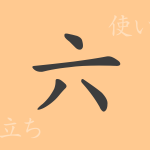The kanji (Chinese characters) that appear in Japanese literature are imbued with deep historical meanings through their shapes and sounds. The commonly used kanji “籠 (ろう, rō)” is no exception, and its usage in Japanese culture is extensive. In this article, we will provide a detailed explanation of the origin, meaning, usage, readings, stroke count, and radical of “籠 (ろう, rō).” Additionally, we will introduce idioms, phrases, and proverbs that use “籠 (ろう, rō),” exploring the rich world of expressions this kanji encompasses.
Origin of 籠 (ろう, rō)
The kanji “籠 (ろう, rō)” refers to a container made by weaving bamboo or wood, and it has been closely associated with people’s lives since ancient times. Tracing its origin, it stems from old Chinese characters and was originally written as “篭 (ろう, rō).” It is a phonetic character, with the bamboo radical “⺮ (たけかんむり, takekanmuri)” on the left indicating bamboo, and “龍 (りゅう, ryū)” on the right providing the sound. This combination gave rise to the meaning of a container made of bamboo, referring to various kinds of baskets.
Meaning and Usage of 籠 (ろう, rō)
The kanji “籠 (ろう, rō)” primarily refers to a container used for holding or carrying items. Metaphorically, it can also mean being deeply involved in something to the point of being unable to escape, or secluding oneself. For example, “籠城 (ろうじょう, rōjō)” means being besieged and confined in a castle, and “籠絡 (ろうらく, rōraku)” means skillfully capturing someone’s heart and not letting go.
Readings, Stroke Count, and Radical of 籠 (ろう, rō)
The kanji “籠 (ろう, rō)” has various readings depending on its form and usage.
- Readings: In on’yomi (音読み), it is read as “ろう (rō),” and in kun’yomi (訓読み), it is read as “かご (kago),” “こもる (komoru),” and “こもり (komori).”
- Stroke count: It has a total of 22 strokes.
- Radical: Its radical is 竹 (たけかんむり, takekanmuri).
Idioms, Phrases, and Proverbs Using 籠 (ろう, rō) and Their Meanings
There are many idioms, phrases, and proverbs in Japanese that include the kanji “籠 (ろう, rō).” Here are some examples:
- 籠城 (ろうじょう, rōjō): Being besieged and confined in a castle, or secluding oneself in a place and not coming out.
- 籠絡 (ろうらく, rōraku): Skillfully capturing someone’s heart and not letting go.
- 籠手 (こて, kote): A type of glove used to protect the hands.
- 籠る (こもる, komoru): Being so engrossed in something that one neglects other matters, or secluding oneself in a room.
- 籠もる (こもる, komoru): Referring to sounds or voices that are muffled or not resonating.
Summary of 籠 (ろう, rō)
Since ancient times, “籠 (ろう, rō)” has been a practical tool in people’s lives and holds various meanings in language. Examining just this one kanji offers a glimpse into the deep history and culture embedded in the Japanese language. Understanding idioms and phrases used in daily life is a step toward comprehending the culture and thoughts behind the words. Rediscovering the richness of the Japanese language through kanji like “籠 (ろう, rō)” is highly valuable in language learning.

























